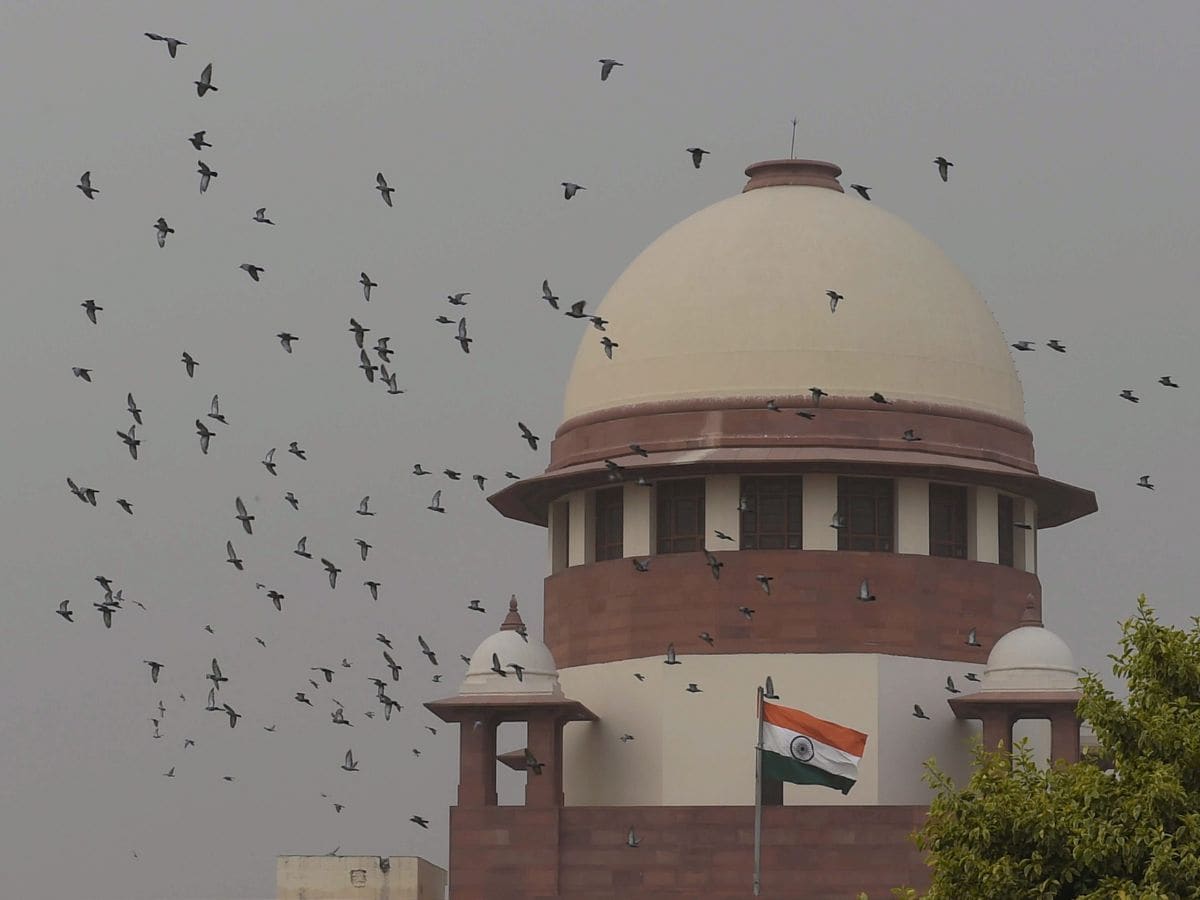
New Delhi: The Supreme Court (SC) on Monday allowed a plea filed by former Aam Aadmi Party (AAP) communications incharge Vijay Nair, seeking bail, in the money laundering case linked to the alleged Delhi excise policy scam.
A Bench presided over by Justice Hrishikesh Roy noted that the Enforcement Directorate (ED) in October last year, while opposing the bail plea of co-accused Manish Sisodia, had assured the apex court that trial in the excise policy case should be concluded within six to eight months.
“In the case at hand, the petitioner has been incarcerated for around 23 months and his incarceration cannot be treated as a mode of punishment without the trial having been commenced. The universal rule of ‘bail being the rule and jail being the exception’ will be defeated if the petitioner is kept incarcerated without trial being started,” said the Bench, also comprising Justice SVN Bhatti.
“The right of liberty guaranteed under Article 21 is a sacrosanct right and requires to be respected even in cases where stringent provisions are incorporated in special enactments,” the apex court added.
It ordered Nair to be forthwith released on bail on furnishing a bail bond of Rs 10 lakh, adding that he will not make any attempt to tamper with evidence or influence the witnesses and will deposit his passport with the trial court.
The Supreme Court clarified that its order granting bail would not prejudice the conduct of trial on merits.
During the hearing, senior advocate Abhishek Manu Singhvi, representing Nair, submitted that his client suffered incarceration of nearly two years, which is more than half of the possible maximum punishment.
Singhvi cited the judgment of the top court, which had allowed bail pleas of senior AAP leader and former Delhi Deputy Chief Minister Manish Sisodia and BRS leader K Kavitha in the excise policy case.
The senior counsel added that both Sisodia and Kavitha, who purportedly acted as “mastermind” (as per the ED) in formulation of the excise policy, did not have benefit of bail in the predicate offences but Nair has been granted bail in the corruption case and continues to remain behind bars for allegedly committing offences under the Prevention of Money Laundering Act (PMLA).
Opposing this, Additional Solicitor General (ASG) SV Raju, representing the ED, said that Nair was roped in as a “middleman” to receive kickbacks from liquor businessmen.
ASG Raju contended that Article 21 of the Constitution would not come to rescue an accused who himself is employing “tactics” to delay the completion of trial.
He submitted that Nair failed to satisfy the twin conditions for grant of bail provided under Section 45 of the PMLA.
In the previous hearing, the top court “reluctantly” deferred the proceedings after the counsel appearing for the ED sought a week’s time to file a reply to Nair’s bail plea.
Deprecating the central agency’s request to adjourn the hearing, the SC noted that the ED’s counsel had already entered an appearance quite some time back but a counter affidavit has not been filed.
On August 12, the Supreme Court issued a notice to the ED on Nair’s plea and asked the federal anti-money laundering agency to file its reply within two weeks.
In July last year, a Bench of Justice Dinesh Kumar Sharma of the Delhi High Court denied bail to Nair.
He had moved the Delhi HC challenging a trial court order rejecting his bail application.
Observing that the “allegations are quite serious”, Delhi’s Rouse Avenue Court had denied bail to Nair and four others – Sameer Mahendru, Abhishek Boinpally, Sarath Chandra Reddy, and Benoy Babu.
The trial court held that there was enough incriminating evidence to show the entire “modus operandi” adopted by the accused persons for the commission of offences under the PMLA.
On the allegations and the role of Nair, it said, “Though he was only the media and communication incharge of AAP, it has been revealed during the investigation that he was actually representing the AAP and GNCTD in different meetings that took place with stakeholders of the liquor business at different places.
“His participation in the meetings in this capacity is to be viewed in light of the facts that he was residing in the official accommodation allotted to a senior Minister of AAP, and once he was even alleged to have represented himself as an OSD in the Excise Department of GNCTD. Further, none from the government or AAP officially participated in these meetings.”
